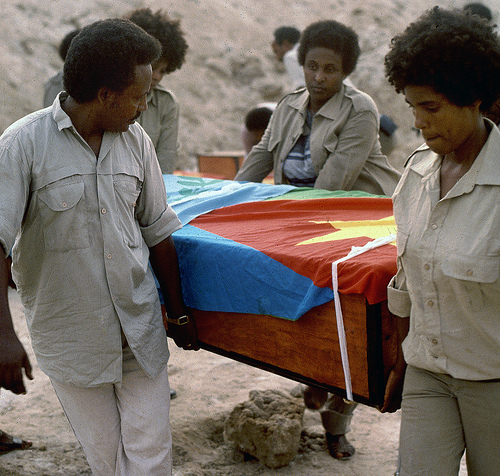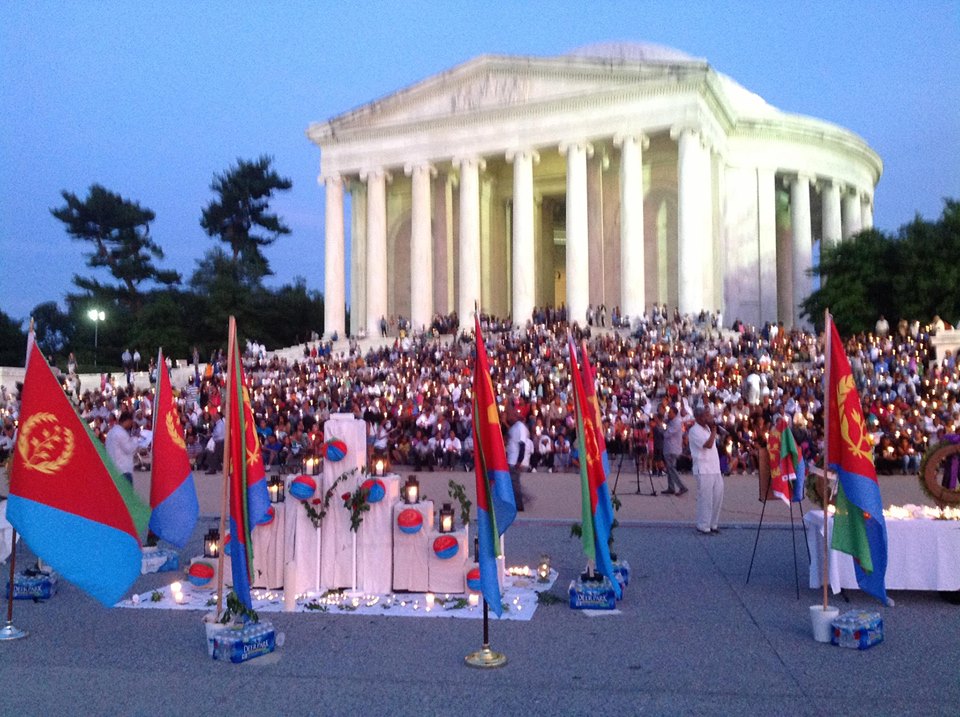Martyrs Day is a moment of sober reflection for Eritreans at home and abroad, as we honor those that paid the ultimate sacrifice in achieving and preserving Eritrean independence. Although no words or deeds can repay the debt owed to tens of thousands of men and women who died in the service of the nation, the events of June 20th are a heartfelt demonstration of the Eritrean people’s continuing gratitude.
It is important to note that moments such as these are about more than reflecting on past heroism and sacrifice; they are an opportunity to take stock of the present and consider future possibilities. For those of us within the large Eritrean diaspora this point is vital, given the deep political divisions and rancor that permeate our communities. As we have previously argued, the political polarization of the Eritrean diaspora has become an existential threat— to the diaspora, the homeland, and the symbiotic links that bind them together. In this context, a conversation on national renewal and reconciliation, and a reconstitution of the fragile bonds that unite us as Eritreans, is an appropriate way for us to honor our martyrs and the nation building process they birthed.
Constitution-Drafting and Our Present Political Condition
As one might expect, President Isaias Afewerki’s announcement of a constitution drafting process has attracted significant attention within the diaspora. Unfortunately, the announcement – and more specifically, the reaction to it – has laid bare the tragedy of our present political condition.
Critics of the government remain deeply suspicious, and in some instances openly contemptuous, of the incipient constitution drafting process. They question the need for a new constitution while Eritrea’s ratified constitution remains unimplemented, and suggest the real “agenda” is to delay reform, institutionalize current authoritarian structures, and sanction past abuses of power. Rather than a document that guarantees rights and liberties, critics view a new constitution as little more than government re-organization. The Eritrean state doesn’t need restructuring, they insist, it requires a fundamental transformation. This means the current administration must go.
Government supporters appear to occupy a very different universe. Arguing the new constitution will represent prudent reform by an enlightened leadership, government partisans greeted the President’s announcement with unreserved jubilation. The constitution will be developed according to Eritrea’s own schedule and unique needs, they argue, and serve as the culmination of 23 years of successful, self-reliant nation building. In this world view, those critics that continue to resist the government’s erstwhile reform efforts will be relegated to the dustbin of history.
We don’t wish to debate the merits of each of these perspectives, or speculate on where the constitution drafting process may lead. Those discussions are better left to others. What we would suggest, however, is that existing discourse leaves us where we started: polarized and divided. Constitution drafting should be about dialogue and a broad based recommitment to the national project. Yet little about the diaspora’s response to the constitution drafting process – and more specifically, the two camp’s responses – reflects these laudable themes. Rather than remaining prisoners in our respective political bubbles, we should take the constitution drafting process as an opportunity to improve our present political condition.
Constitution Drafting as Reconciliation
Constitution drafting processes are moments of real possibility, because they have potential to fundamentally reorder political, economic, and social relations. As the DNA of nations governed by a modicum of law, a constitution’s design should always be taken seriously.
It is also true the transformational potential of constitution-drafting processes can create significant political differences. At stake are the distribution of power and hard interests. In light of these realities, it would be foolish to expect the Eritrean constitution drafting process to usher in a magical period of unity and goodwill within the diaspora or the Eritrean body politic more generally. Invariably, many of us will be unhappy with the outcome, and this is the natural course of things.
Yet the constitution drafting process can help move us closer towards something we desperately require—reconciliation. Our society needs to heal the wounds generated by our deep political differences, recognize our common cause as Eritreans, and recommit ourselves to unity and national progress. While many will rightly focus on outcomes – the constitution’s structure and provisions – process is critical to moving us toward this goal. Inclusive and broad based consultations, in which every Eritrean is treated as a stakeholder in the development of our new constitution, is essential. This means a truly “national” dialogue on the constitution, where one’s political opinion does not disqualify them from participation. After all, we were Eritreans long before we retreated into our respective political camps.
In the end, the act of deliberation and dialogue, which is what popular consultations over constitutions generally provide, can plant the seed of reconciliation. We will not all agree on the end product, but a process in which everyone has been granted the opportunity to participate and be heard, will constitute progress in rebuilding of our national fabric. Diasporans have long forgotten how to talk with one another about issues of national import, and it is time we remember our traditional values of cooperation and banish our bad habits. The constitution drafting process can provide the space for a new, more productive political discourse.
Like all things as complex as constitution drafting, the devil will be in the details. But we believe a process that promotes reconciliation will require two basic things. First, the government’s erstwhile critics must agree to engage in the constitution drafting process, without prejudice or malice. They are free to disengage from the process if they find it wanting, but they should give this new effort a chance. Second, the government and its supporters, as custodians of the constitutional process, should proactively engage and accommodate their critics in the constitution drafting process to find areas of common ground. The must be willing to build new bridges, and rebuild those that have slowly decayed.
This will require that both sides forgive the sins of the past, while privileging our future as a nation. We believe this is possible, since Eritreans of all political stripes are patriots. Eritrea’s martyrs demand a new spirit of reconciliation worthy of their sacrifice, and the constitution drafting process provides a real opportunity. Let us seize the moment.


